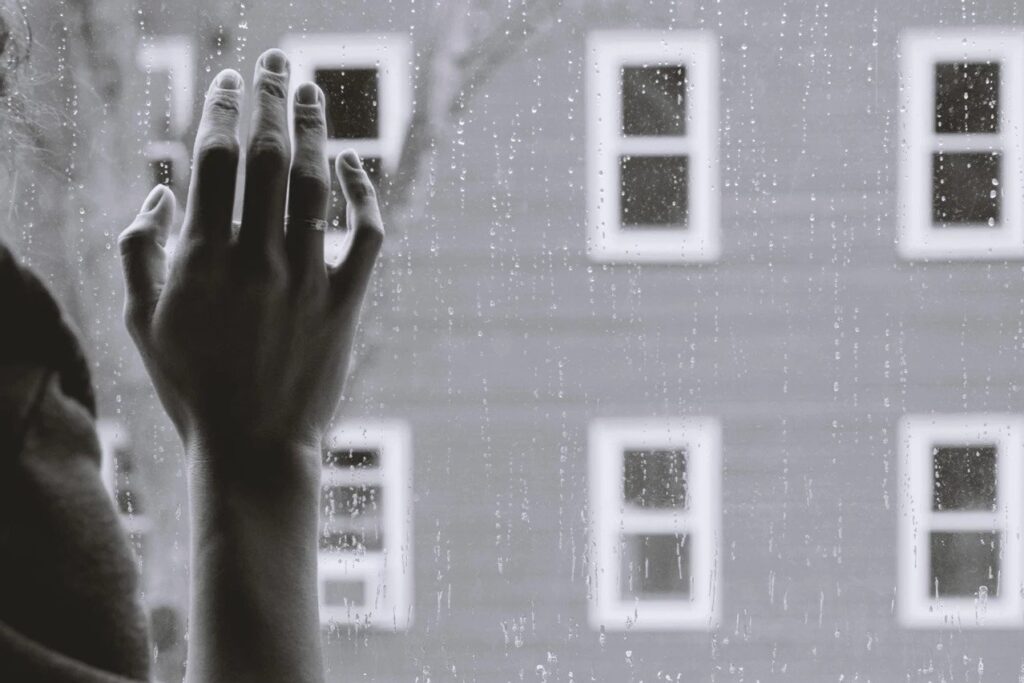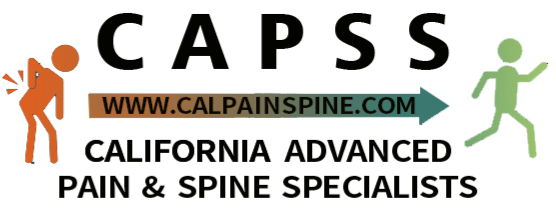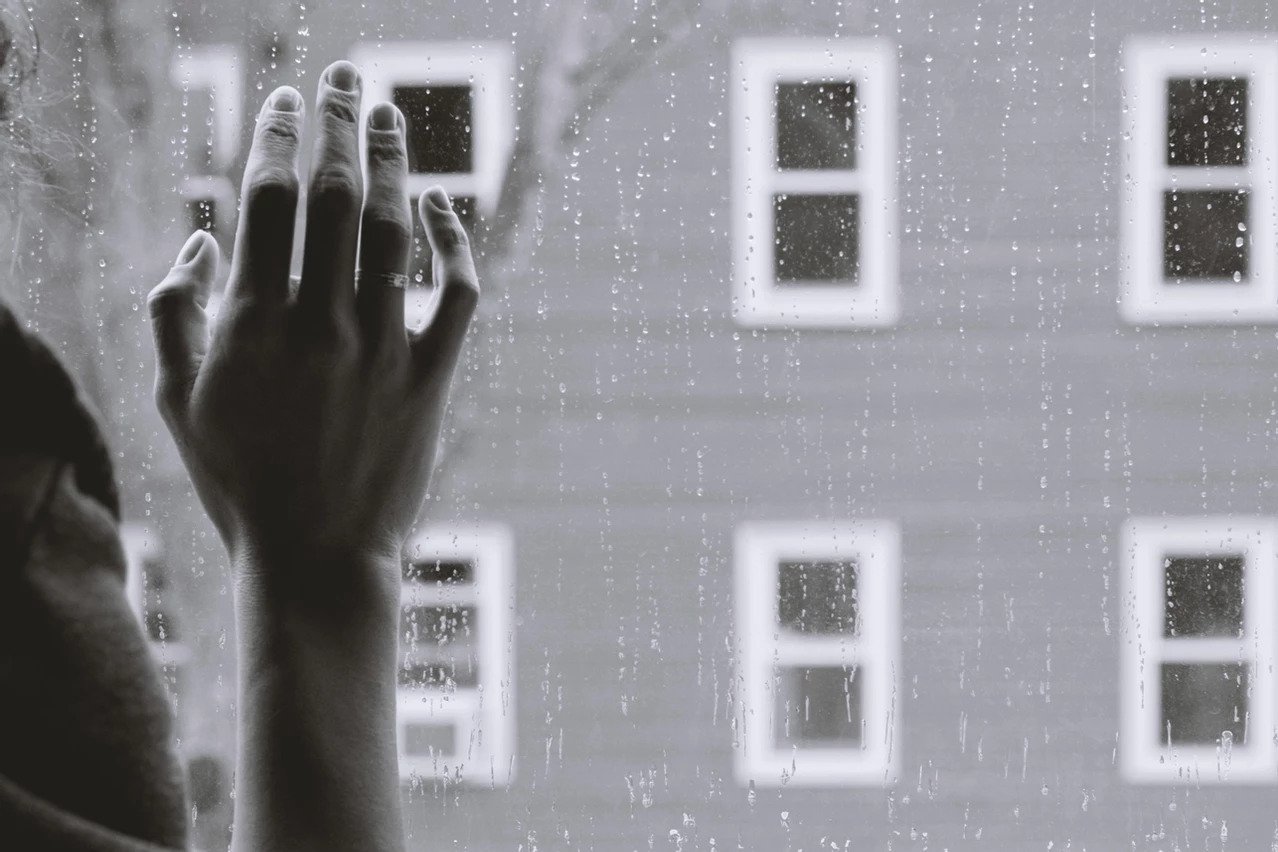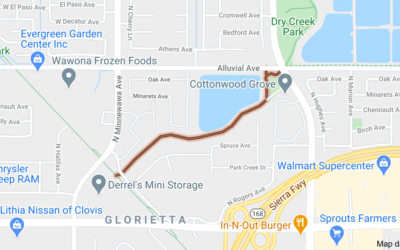Chronic pain is not just a physical sensation. It comes with feelings of loneliness and isolation. These feelings may be further exacerbated by the social distancing during COVID-19.
Why do we feel this way?
People in chronic pain often feel trapped by their bodies. They find it difficult to explain their feelings to those who do not suffer. These inward-turning feelings can increase social isolation and loneliness.
Even loved ones can sometimes fail to understand the devastating side effects of this “invisible illness”.
Chronic pain can dramatically change a person’s life. What they once took for granted no longer come easily. Before, they may be running marathons or chasing after grandkids. Now, they can barely get out of bed. They may no longer be able to attend events and feel guilty for missing important celebrations.
What are the effects?
Pain is an individual experience, but humans are social creatures.
Loneliness causes physical and mental deterioration in older adults. The level of isolation directly correlates with the level of pain. Isolation can create a reaction in the body that mimics the pain response. The lonelier someone is, the more pain and negative feelings they feel.
How to cope?
Chronic pain and loneliness may go hand in hand, but knowing how to cope with chronic pain and loneliness can help relieve both.
1. Let yourself be heard
Talk candidly with your family and friends about how you feel. Let them know how they can better support you.
2. Reach out to people
One of the most challenging aspects of chronic pain and loneliness is being separated from people and events.
You don’t need to plan a party with 20 guests. Re-connect with a simple phone call and avoid the pain that occurs after overexerting yourself.
3. Go online
The online community can be a supportive place. Find Facebook groups or forums based around your interests. It can also help relieve boredom and keep your mind off your pain.
- PsychCentral Forums. PsychCentral is one of the leading websites for connecting patients with therapists around the world. Further, they act as a hub for information about all things mental health. This amazing website also offers access to a great free therapy forum. Each of their forums are centered around a specific topic, such as addiction or anxiety, and are available 24/7/365. This can be a great option if you suffer from insomnia and need to reach out to someone in the middle of the night, or can’t leave the house.
Their forum also hosts weekly chats, social chats, forums for relationships and communication issues, areas for people to talk about school or work, and virtual kudos and hugs for when you need it the most.
- Huddle. Huddle is a free iOS app that uses video sharing to connect with other people around the world in shared safe spaces. While it’s not direct therapy, many find that they can find their support system through this app, with dedicated groups for depression, anxiety, LGBTQ+ groups, physical disability, addiction, and many more.
4. Turn to therapy
Cognitive behavioral therapy has been shown to be particularly effective in relieving chronic pain. While you may not want to physically go see a therapist during COVID-19, there are many alternative options.
- Blah Therapy. Blah Therapy is free therapy online with two options: free talking to a stranger, or a paid option to talk with a trained therapist.
For people who need to vent and get a sympathetic ear while maintaining anonymity, Blah is a great way to go. Clients can go online at any time and either vent in general or sign up for a chat, all for free. Wait times may vary for the chat, but there is nearly always someone available.
- iPrevail. iPrevail is free therapy online that follows a peer-to-peer model. Log on to chat with a trained “peer specialist” for support, or fill out a health questionnaire to get more tailored advice. Their peer-to-peer model is completely free.
One thing that sets this system apart from other free online therapy is the evidence. iPrevail conducted a clinical trial of their method and found that it removed barriers to care and provided therapy that was comparable in success rates to face-to-face therapy.
5. Laugh a little.
It may feel difficult to laugh or even smile when you are in pain, but studies show humor increases happiness and satisfaction even when pain persists. Find books, podcasts, movies, tv shows, or even a funny friend to add some laughter to your days. Some comedians like, Maysoon Zayid or Samantha Irby may shine a funny and understanding light on your daily challenges.
6. A little gratitude goes a long way.
This may be a difficult suggestion if you cope with both chronic pain and loneliness, but studies have shown that people who practice gratitude report less pain. The more grateful you are, the less impacted you are by pain. Consider keeping a small journal and write down what you are grateful for daily in your life.
7. Get a pet.
Animals can bring comfort to our lives, especially on our hardest days. If you have the ability to care for an animal, consider adopting a rescue.






